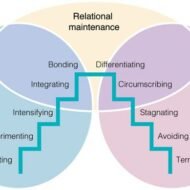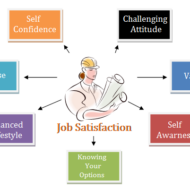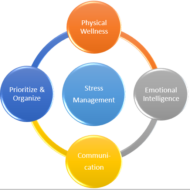Posted by Managementguru in Business Management, Decision Making, Human Resource, Motivation, Strategy
on Aug 20th, 2014 | 0 comments

Why Strategic Plans Fail What are Strategic Action Plans? Action plans refer to definite actions that are related to either short- or longer-term strategic goals. Action plans should include details of resource commitments, allocation and time horizons for accomplishment. Action plan development represents the key stage in planning that facilitates effective communication of plans throughout the organization followed by resource planning and deployment. Action plans are also referred to as projects, strategies, tactics, or initiatives. Plans in paper may look more creative and feasible in nature; in reality it is a big quest unanswered. Are executives showing the same kind of enthusiasm in giving shape to the plans they charted out in paper? Most plans fail or do not give the expected optimum results and the reasons attributed may be listed out as follows: 1. Authority is delegated but Responsibility is forgotten: Senior management executives are the STRATEGIC DECISION-BRAHMAS obviously but do they demonstrate what needs to be done? Demonstration is one of the powerful forms of communication and if the strategies are only to be communicated down the line and not to be followed by the senior officials how do you expect your team to perform efficiently? 2. Confusion between strategy and Ideas: An idea is a conceptual construct about a particular thing. It is more abstract in nature. But when it comes to strategy, you need to have a solid FUTURISTIC action plan that is bound to give you the desired results in the long term. The elements essential for a good action plan are: Availability of Resources (Men, Material and Money)Efficient Resource Allocation to the various Strategic Business UnitsProper DeploymentRegular Follow-up until accomplishment of goalsMinor Modification of plans in accordance with the macro environment (legal, economic, financial etc.,) 3. Dis-Orientation of Senior Leaders: If a senior leader reaches that higher position through internal promotion, he loses touch with day-to-day activities though he has a strong contextual understanding of the business. If a senior management leader happens to reach the top through external recruitment, it takes time for him to understand the business and the nature and needs of the organization. Only few leaders are capable of devising action plans that exactly nails the problem-situation (as we all know when an organization is looking for a turn around, the first blow is to the CEO of the organization). 4. Laissez Faire attitude doesn’t work out for strategic action plans: A senior leader has to monitor an action plan from the start till the end until the expected result is achieved. No strategy succeeds without a visionary in the background. The passion that a leader exudes is overwhelmingly infectious and motivates the team to complete a project. Here the leader is the initiator who is involved throughout strategic planning process so that momentum is sustained during the critical transition from planning to action. Follow ManagementGuru Net’s board Strategic Management – The Inevitable on Pinterest. 5. There might be one good goal but definitely no one good strategy: Understand strategies are subjected to change in accordance with the internal and external environment. Say, you have invested quite a good amount of money in shares of a particular reputed company and you come to know that there is a senior level management leadership change and feelers are that prices are likely to crash. What will you do? Just being able to conceive bold new strategies is not enough. The management must also be able to translate its strategic vision into concrete steps that is “getting things...

Posted by Managementguru in Business Management, Human Resource, Labor Management, Motivation, Principles of Management
on Jun 10th, 2014 | 0 comments

The employees have to be compensated for what they do for an organization – hold on folks, besides the salary prerequisites, there are many other things which help in retaining them in the company and sustain their motivation. Monetary benefits alone do not satisfy employees. You have to think about other ways to pay back your employees through non cash benefits to make them feel they belong. Motivation is a big factor for consideration when it comes to retaining your employees. Direct Compensation Employees expect fair wages commensurate with their skills, experience and job content. Wages should be ascertained keeping in mind the cost of living in the particular locality. These should be revised periodically to account for inflation so that the real wages do not go down over the time. Wages must have a system of yearly increments, which should be flexible enough to reward good performance. Legal Perspective In India, the Minimum Wages Act, 1948 provides for fixation and enforcement of minimum wages in respect of scheduled employments. A tripartite Committee Viz., “The Committee on Fair Wage” was set up in 1948 to provide guidelines for wage structures in the country. Article 39 states that the State shall, in particular, direct its policy towards securing (a) that the citizen, men and women equally shall have the right to an adequate livelihood and (b) that there is equal pay for equal work for both men and women. Fringe Benefits These are also termed as indirect compensation that an organization provides to its employees which may include – insurance against accident, travel concessions, medical facilities, subsidized meals, uniforms, housing etc. The Finance Act, 2005 has introduced a new chapter VII-H, ‘Income-tax on Fringe Benefits’. The Chapter now brings to tax the fringe benefits collectively enjoyed by the employees and which cannot be attributed to individual employees. The Fringe Benefit Tax is to be borne by the Employer. Different methods of employee compensation! Promotion Employees expect to improve their position in the hierarchy over the time. This improvement in position is called promotion. 1. It immensely helps an employee to feel important and useful to the firm. 2. It enhances his/her status within and outside the organization. 3. Through promotion, he/she looks forward to accomplishing more challenging tasks, including participation in the decision making process. Payday Meme! Out of 440 million workers in India, 93% of the workers are in the unorganized sector. The contributions made by the unorganized sector to the national income, is very substantial as compared to that of the organized sector. It adds more than 60% to the national income while the contribution of the organized sector is almost half of that depending on the industry. In India, only about 8% of workers actually get the benefits available under various labor Acts. The rest 92% work in the unorganized sector, and either are not eligible for coverage. Types of Compensation! Job Security One main reason why people are reluctant to join small enterprises even at higher salaries is their ‘apprehension’ about ‘job security’. An enterprise that is able to dispel such apprehension benefits substantially in the long run. Working Conditions One primary cause of dissatisfaction of workers is ‘the quality of their working life’ which includes Reasonable hours of workA work placeTea breaksProvisions for a room for recreation, lunch etc.Availability of safety equipment and first aid facilities, andWater cooler, lavatory etc. These things may not improve productivity, but will help in preventing job dissatisfaction among workers. The management must also ensure that cordiality and friendliness is maintained between the workers. An environment should be created in which the superiors and senior employees and workers develop mutual...

Posted by Managementguru in Human Resource, Motivation, Organisational behaviour, Principles of Management, Training & Development
on Mar 31st, 2014 | 0 comments

Human Behavior- A Psychodynamic Approach In any organization, utmost importance is given to human resource management. Handling or manipulating other resources like physical, financial or production is at your discretion. When it comes to managing your employees, there you go! You start feeling the pinch. Man is like a “live wire” and if you don’t possess the mastery to understand and utilize the power behind his psyche, then you are at a loss and you are not capable of what is called “the wizard touch”. Maintaining the Employee Morale: The main problem with your subordinates or even with yourself might be boosting up of morale. Always keeping yourself in a cheerful proposition will take you to greater heights, as it helps you to achieve your goals faster. Human strength lies in self belief which is his reserved store of strength, the one which he never utilizes or not allowed to utilize to the fullest extent possible. A bureaucratic or autocratic manager should understand the fact that when human mind is given a chance to explore with full freedom instead of following orders it comes out with the greatest ideas; which may prove fruitful to your organization in a big way. Make Your Work-force Dynamic: If a person wants to become successful in a business venture, he should possess the fire of unfailing enthusiasm and the nerve to face the adversities that come in his way. Life is a game and so is business. You can play the game fearlessly when you are backed up by like minded individuals who will carry on your fire to the next level. So it is important on your part to prepare your subordinates to adapt to the different dimensions of the business atmosphere and make them more dynamic. Human mind has the power to grasp things faster than what we assume it to be. Even average performers can be transformed into star performers when, The work itself is appealing, yielding and useful The work has scope for independent activities The Work defines goals or targets The social atmosphere created by the manager is warm Innovative ideas are welcome Empathy on part of the manager The Power of Relaxation: Another important aspect for the betterment of human psyche is relaxation. A relaxed mind can achieve things hundred times better. People who are always on the run have the feeling that they have not accomplished much. If you keenly observe, only 8 hours of productive work is done every day. In order to accomplish whatever you have in your agenda, you definitely need to relax and plan. The art of resting the mind and the power to dismiss all worries and exhaustion is probably the winning formula. The employer who secures the goodwill of his employees can accomplish more with less effort and exhaustion. Try to bring out the creativity of your subordinates to make the climate of your firm cordial and the attitude...

Posted by Managementguru in Decision Making, Human Resource, Motivation, Organisational behaviour, Principles of Management
on Mar 19th, 2014 | 0 comments

Are You Happy with Your Job What is your attitude towards Job? How many of us go to work with cheery attitude and positive framework of mind. Most of us treat work as a duty or accountability. Either way it does not solve the purpose. If you treat job as a duty, there can never be any enjoyment attached to it. In case of accountability, you work to reach some targets without any passion for the job or you spend most of your time dreading the thought of reporting to your superior. Without involvement and love, any job is not complete and people experience only “Job Satis-friction“and not satisfaction. Have you thought about it? Scenario in Developing Countries: In most of the developing countries the proportion of dissatisfied group dominates the satisfied set of employees. This is because preference and priority is to earn the daily bread rather than achieving anything big. Well, this attitude shall be attributed to the low income group where without work their lives cannot go on. But the bottom line remains the same, the work should be satisfying. So, what are the terms? Also See: Performance Appraisal High Income Group: In high income group and higher level jobs where the work is very challenging, we see that the employees are very much satisfied with their work. They need constant battles to win over and are provided with such an environment that puts their think tanks into full use. But is it enough to keep them satisfied; no, the reward system has to be equally compensatory. Rewards in terms of pay, perks, recognition, appreciation, social status, awards and what not. So, how do we correlate satisfaction factor with productivity? The organization has to maximize the positive relationship between performance and reward systems. Also See: How to Handle Attrition 30 Simple Ways to Make Your Employees Happier Repetitive and Monotonous Jobs: Repetitive and monotonous jobs make a person dull headed and a stereotype; his enthusiasm is absorbed to the extent that he fails to understand and rejuvenate his skills. The job content should provide at least some sort of cheer and interest to the performing individual. Say for instance, you manufacture plain paper cups, if you decide to incorporate some floral designs on the covers; you very well witness a fresh whiff of enthusiasm amongst your work force. Such is the power of variety and change that brings cheer into human lives and attitude. If you are a terrific boss everybody will like you but if you are a source of terror, chances are there that there is a high turnover ratio in your company. People after all expect certain level of consideration and warmth from their bosses. Organizations must make the individuals perceive their roles properly to affirm satisfaction and to avoid conflicts. Career Advancement: Courtesy – Roscostretch Career advancement is what most of the people aspire and when they don’t find any scope for advancement their interest in the job gradually decreases. Merit versus experience factor also has its say over deciding the next probable candidate for promotion. The top level management, especially the human resource department must ensure the employees with a supportive environment that paves the road for collaborative effort and in turn internal satisfaction. Job Satisfaction: Job satisfaction has to be considered from a broader perspective that encompasses all the independent and dependent variables that affect the nature of a particular job. This is very vital to an organization as job dissatisfaction leads to absenteeism, high turn over or attrition and decline in productivity. A dissatisfied employee is always a pain who can create problems by voicing his protest, gathering the union, neglecting his work or quitting. To avoid friction in the minds of...

Posted by Managementguru in Human Resource, Motivation, Organisational behaviour, Principles of Management, Stress Management, Training & Development
on Mar 19th, 2014 | 0 comments

Did you know that without your knowledge, your health might be deteriorating due to pressure at work. Effective stress management is the only way out to become happier, healthier, and more productive. Whatever we do or say has a direct effect on our physiological processes as it affects our psyche-both positive and negative. While positive vibes act as a booster to our health, enhances the morale causing increased productivity which is “THE CONTRIBUTION FACTOR” in corporate organisations, negative vibes causes distress to the party affected and in-turn the organisation. Though in a small way, which is enough to cause great distress waves amonsgt the entire organisation through grapevine. Morale Surveys Therefore, it becomes necessary that every organisation takes some time to understand and analyse the mind-set of their employees to maintain the entire health of their firm. This can be done through surveys or questionnaires which serve as best platforms that shoulder employees’ opinion. On the side of the individual, he also should spare some time, from time-to-time to analyse his attitude towards the organisation and his/her colleagues and how it affects his/her performance. Management scholars say that “SELF-APPRAISAL” is the best tool for enhanced organisational performance and productivity. What is Stress? It is very important to understand what stress is, to combat it. Stress is nothing but a condition where people get excited emotionally or in other words ” a disturbed mental state” affecting the well-being. The causal agents may be physiological which can be medically treated or emotional which we are more worried about as emotionally unstable individuals cannot think properly which again leads to physical distress. It becomes therefore vital to know how we perceive and interpret things through our cognitive skills, again influenced by environmental factors to a considerable extent. People, particularly working in corporate environment and IT industry are subjected to much stress and they don’t know how to find a vent to their feelings or when there is no adequate support from the family side. What are the Ways Out? So, what is it we do at times like these? Not to bother. The mantra is “RELAX” to the maximum possible extent. First thing extract yourself away from the scene of action so that you could breathe some fresh air. Then think calmly and try to isolate the bug that is bothering you. Here the problem is the bug and analyse how far you have become vulnerable to the situation. Gauge the amount of damage done and rate the problem in terms of ” recoverable by myself- no help needed”, ” recoverable- but with external support”. Remember, for every problem there is a solution. It may not be tailor- made, but definitely passable with little bit of compromise from our end if necessary. 10 Yoga Poses You Should Do Everyday to Combat...










